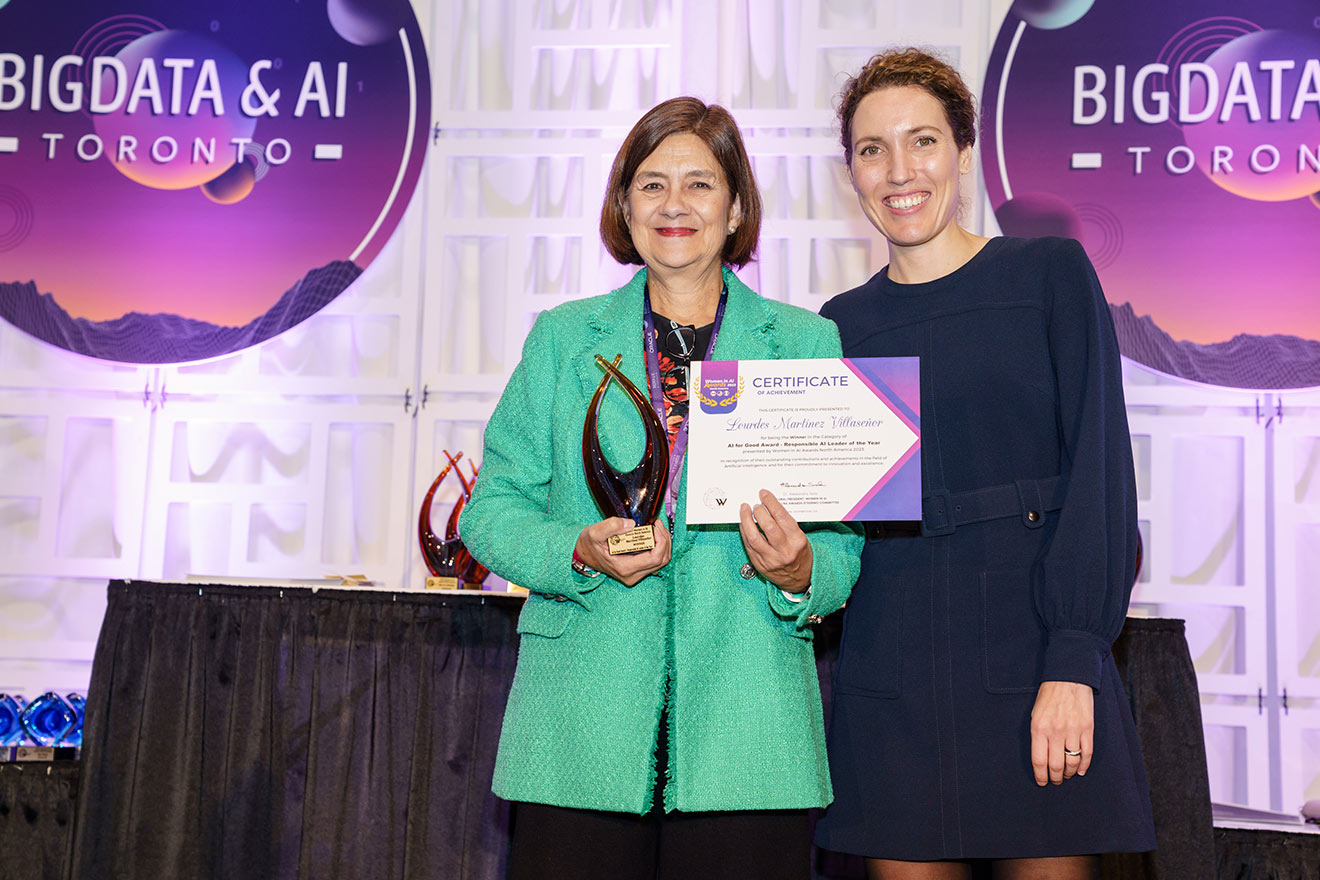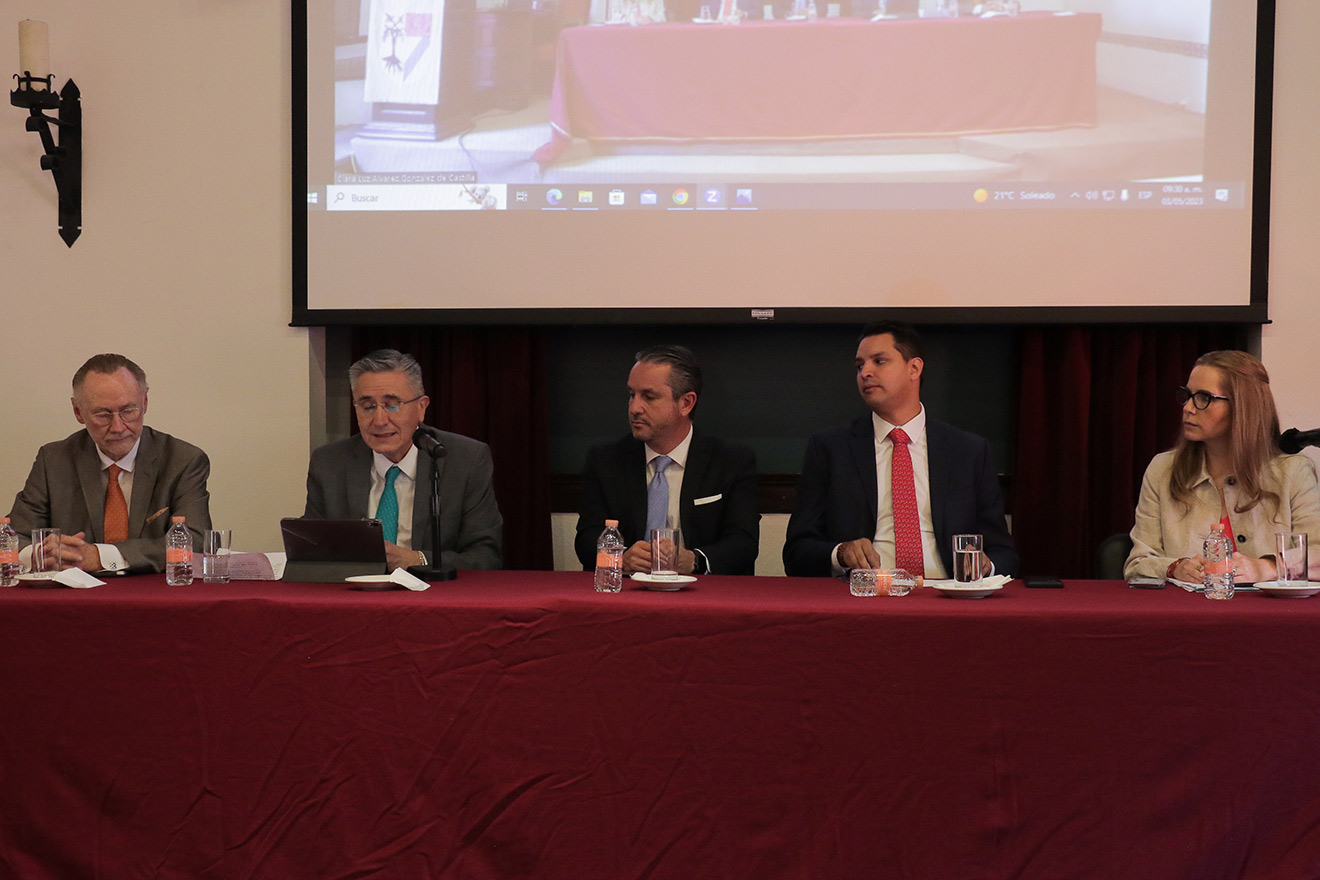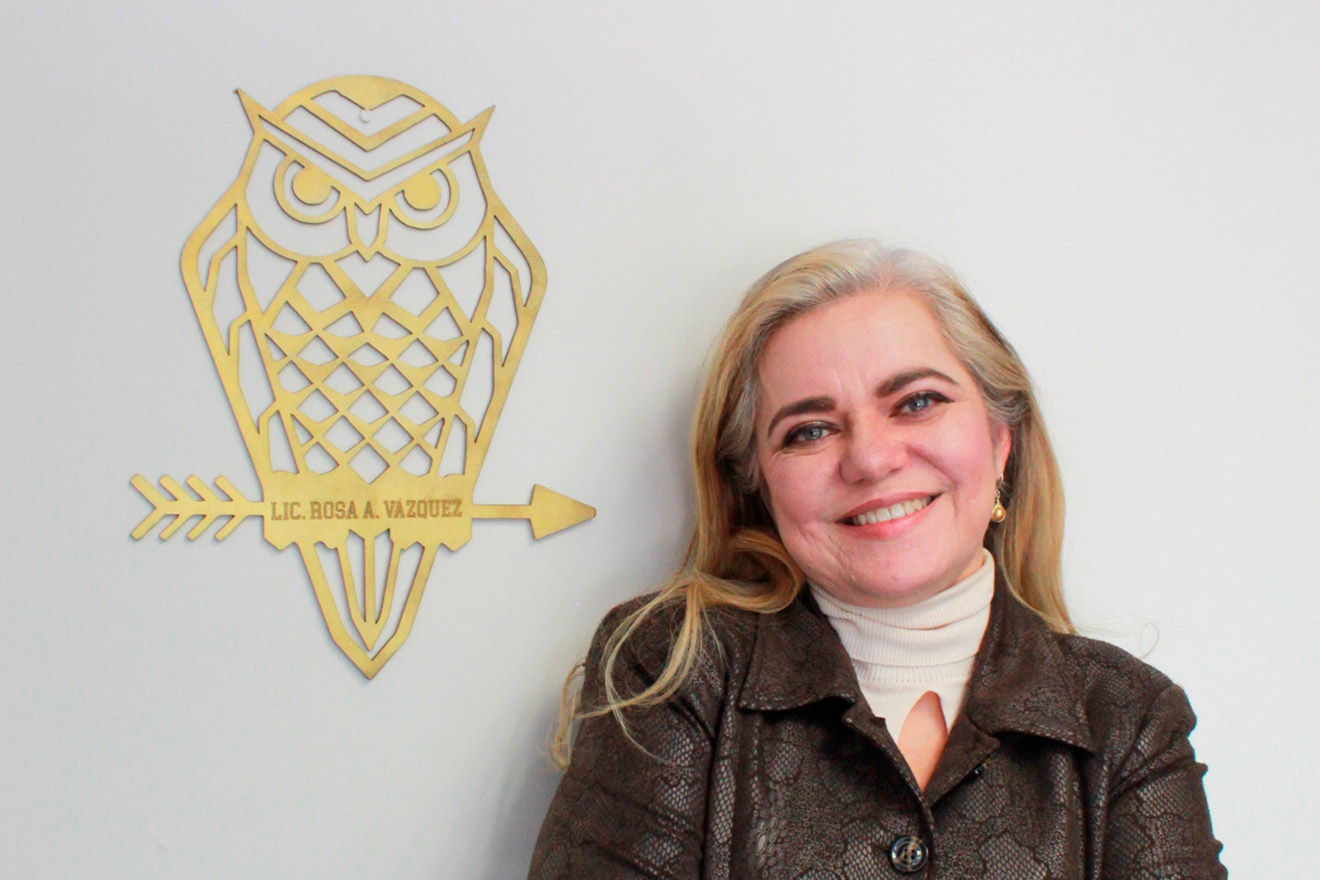Mexico City, December 8, 2023.- On the occasion of the celebration of its first 25 years of existence, the School of Medicine School of Medicine of the School of Health Sciences of the Universidad Panamericana organized the IV Symposium of Virtual Medicine and Therapeutic Advances in which international and national experts presented the most relevant data in this field.
The event was attended by Dr. Gregorio Tomás Obrador Vera, Director General of Health; Dr. Stephanie Derive, Dean of the School of Health Sciences; and Dr. María de Lourdes González del Rincón, Dean of the School of Medicine.
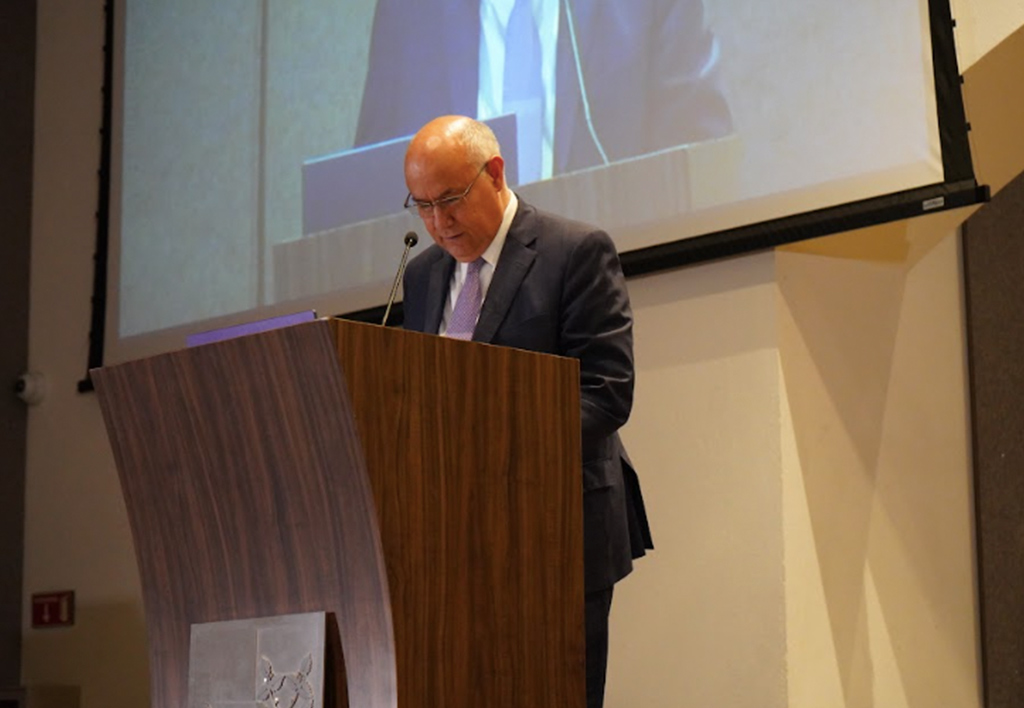
In his welcome message Dr. Obrador highlighted the importance of collaboration and knowledge sharing in the field of medicine, as well as the continued commitment to excellence and innovation in medical care at a crucial time when technology plays an increasingly important role in advancing the health and well-being of society.
Role of AI in healthcare
The first conference How does artificial intelligence work in healthcare was given by Dr. Richard Satava, professor emeritus of surgery at the University of Washington. He gave a detailed description of the application of artificial intelligence (AI) in the field of medicine, and reinforced the importance of this technology in the advancement of modern medical care.
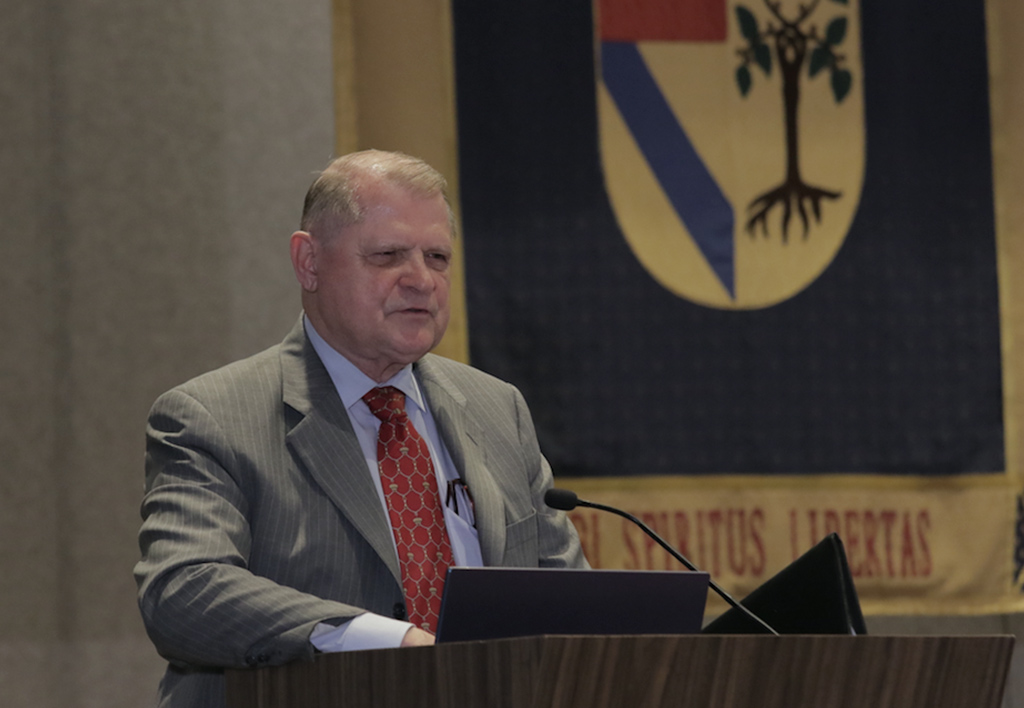
He also spoke of AI's ability to process large volumes of data and detect complex patterns, which has proven invaluable in the clinical setting, providing physicians and healthcare professionals with powerful tools to improve the accuracy and effectiveness of diagnoses and treatments.
"By enabling a more personalized approach for each patient, AI offers the potential to improve health outcomes and speed recovery times, which directly benefits patients," he stated.
Imaging, robotics and artificial intelligence
The conference Imaging, robotics, and artificial intelligence: the three weapons of choice to achieve a Smart surgerywas given online by Dr. Jacques Marescaux, MD, president of the Institut de Recherche contre les Cancers de l'Appareil Digestif, Strasbourg, France.
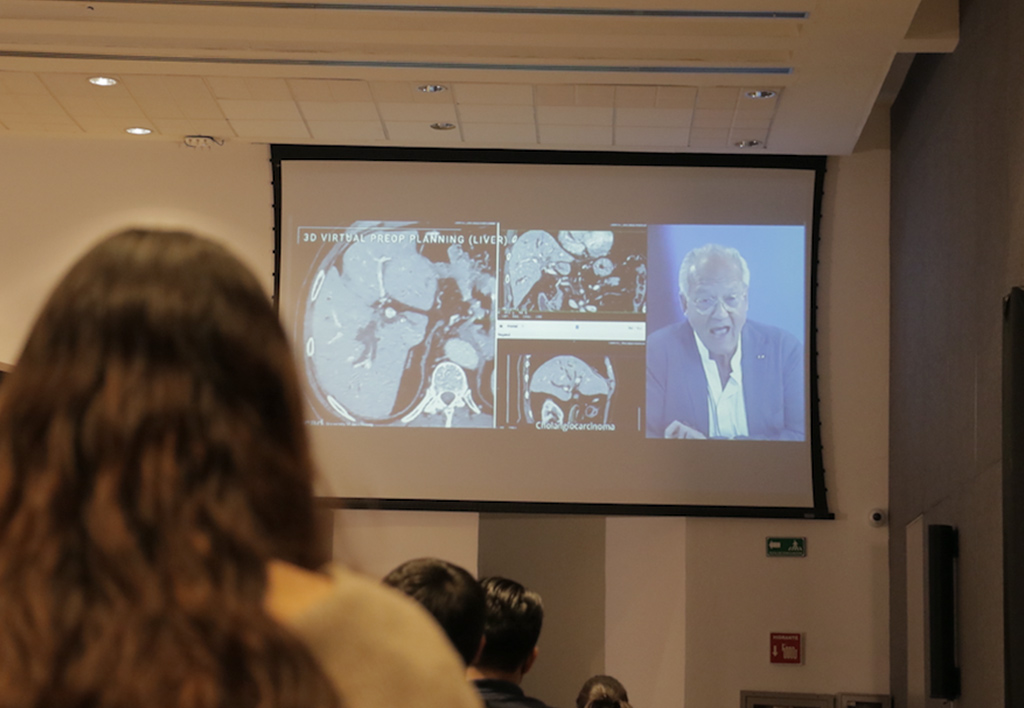
The combination of robotics, imaging, and AI was discussed as the best way to do smart surgery. The pioneer of minimally invasive surgery, noted, "Advances in robotic-assisted surgery and the integration of artificial intelligence into the field of medicine are creating a significant change in the way surgical procedures are performed."
He also discussed how the Momentis, Pentax Endomaster and EndoQuest robots are outstanding examples of how robotic technology is being used to improve the accuracy and effectiveness of various types of surgeries.
"These advances allow for less invasive procedures, faster recovery times and greater precision in the treatment of complex medical conditions," he said.
Advances in Alzheimer's research
Dr. Joseph C. Masdeu, recognized for his outstanding work in the research and treatment of Alzheimer's disease, gave the lecture Monoclonal antibodies to reduce amyloid beta in the Alzheimer's process..
He said: "The approach of using monoclonal antibodies as part of the treatment to reduce amyloid-beta, one of the key proteins involved in the development of Alzheimer's, is part of the search for effective solutions to slow the progression of this debilitating disease.
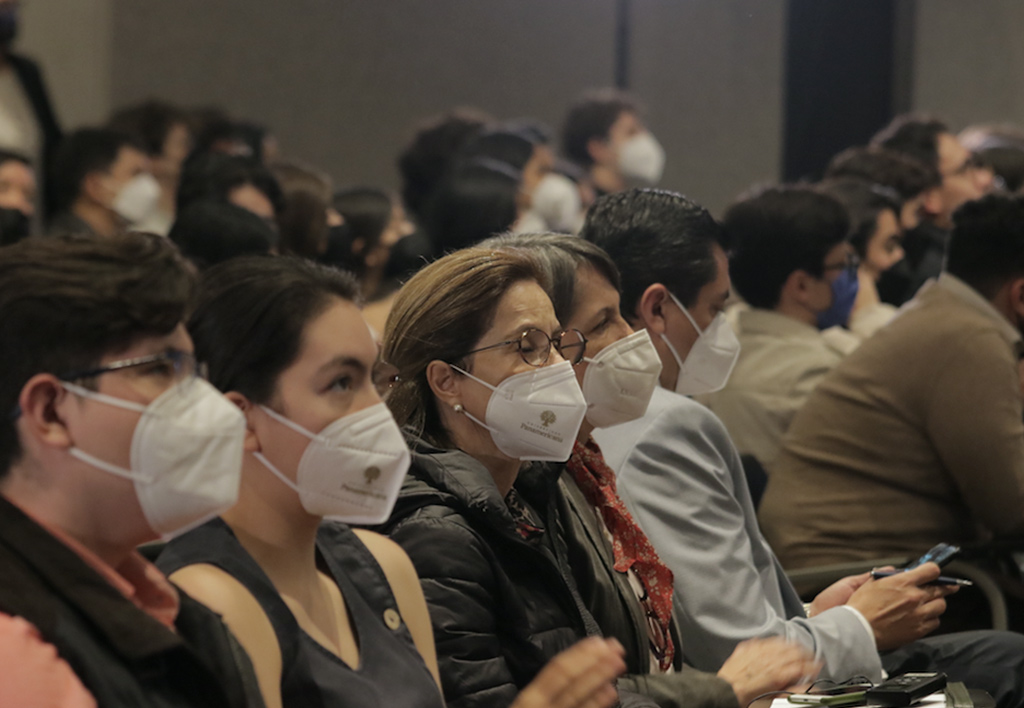
"Such research also offers hope to patients and their families by providing treatment options and intervention strategies that could improve the quality of life for those affected by this condition," he reported.
Value and limits of AI in health
Subsequently, Dr. Evandro Agazzi, director of the Interdisciplinary Center for Bioethics at Panamericana, conducted an analysis on the value and limits in the field of health, and shared a reflection on the dichotomy between the natural and the artificial in relation to the human being and technology.

Recognizing that the artificial environment is the true ecosystem of man today, Dr. Agazzi emphasized "the importance of understanding the ethical and moral boundaries that should guide the development and implementation of technology in the health field."
"This understanding involves recognizing that while technology and AI can provide significant benefits, their application must take into account human values and patient welfare as a top priority," he said.
Although AI can provide valuable information and assist in clinical decision making, Dr. Agazzi stressed "the importance of the physician retaining ultimate responsibility for medical decision making, always ensuring the well-being and safety of the patient."
Artificial intelligence applications in healthcare
Dr. Lourdes Martínez Villaseñor, head of academy of the Master in Data Sciences of the Panamericana School of Engineering, gave the conference Applications of artificial intelligence in health.
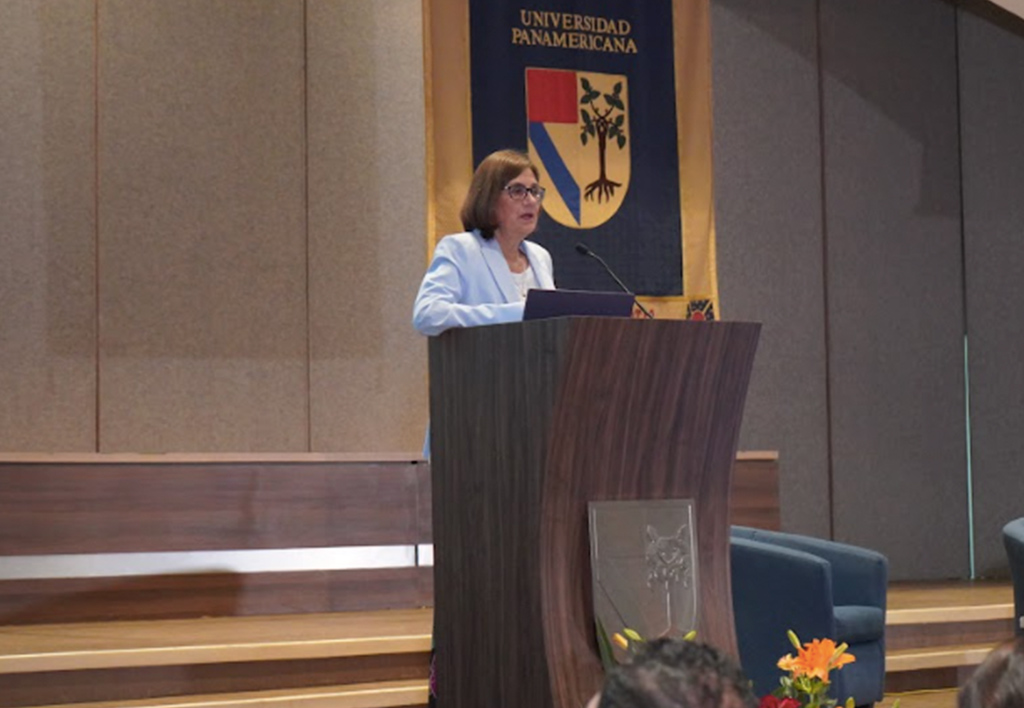
In it, he stressed the importance of maintaining transparent ethics and an equitable approach in the implementation of AI and digital health systems. Likewise, he emphasized the need for transparent and ethical systems that ensure accountability and trust in the use of AI in healthcare.
"The need to consider equity and inclusion in the development of AI systems is critical to ensure that technology benefits all groups in an equitable and fair manner, avoiding any bias or discrimination in medical care," he said.
Emerging technologies
Dr. Vesela Kovacheva, Director of Clinical and Translational Research, Division of Obstetric Anesthesia, Brigham & Women's Hospital, and Assistant Professor of Anesthesiology, Harvard Medical School, gave the lecture Generative Artificial Intelligence and Large Language Models - emerging technologies coming to the bedside..
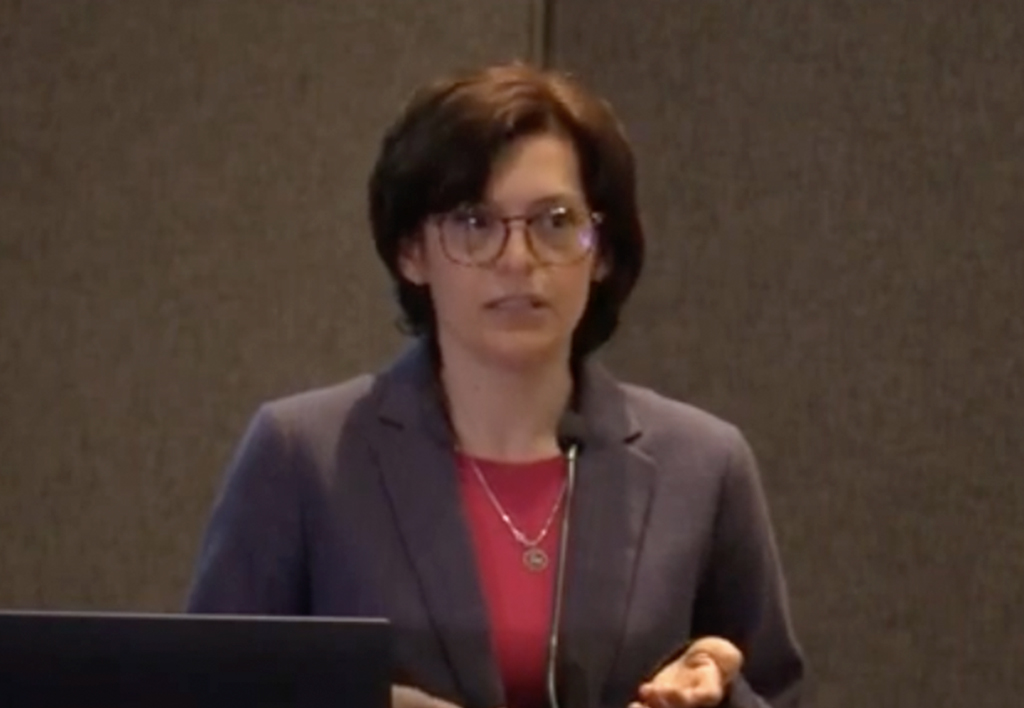
He added: "it is difficult to do AI for the healthcare area in particular. Either you have too little data or too much, or it is very heterogeneous or not clean, and working with it is a big challenge.
He also discussed how to standardize data for analysis and how to deal with the challenges of genetic models and population diversity. In addition, he emphasized "the importance of data protection and patient privacy when performing analysis and processing of medical information" .
Learn more about what the School of Medicine has to offer: https://www.up.edu.mx/educacion-facultad-de-ciencias-de-la-salud-oferta-academica-escuela-medicina/




